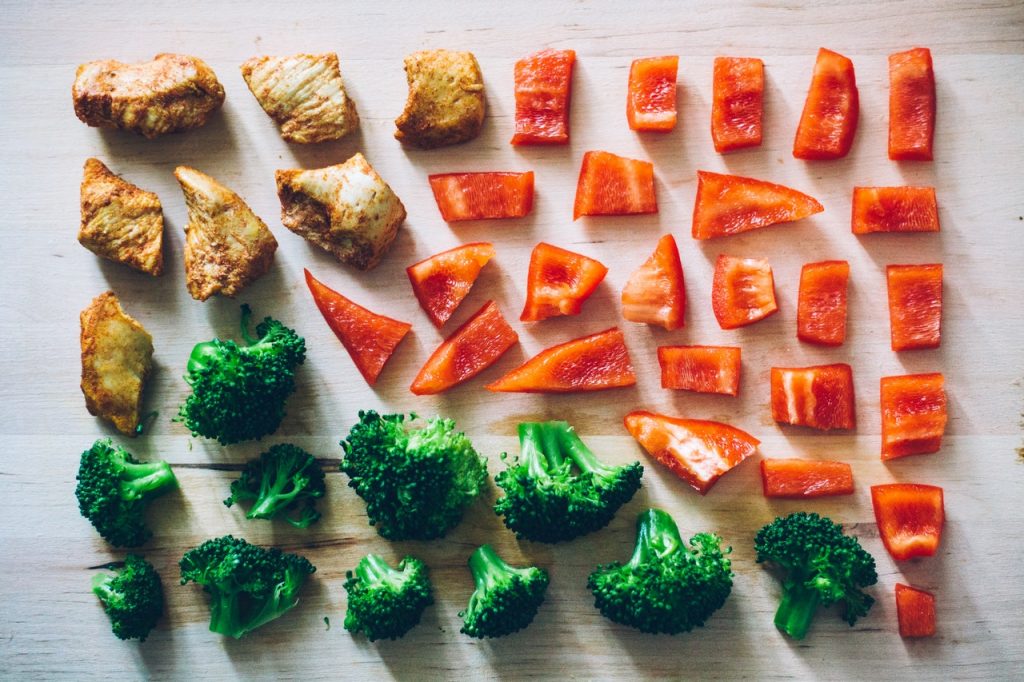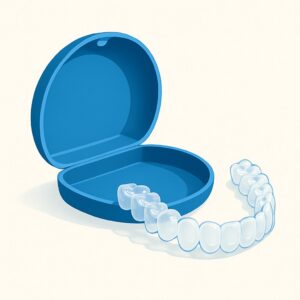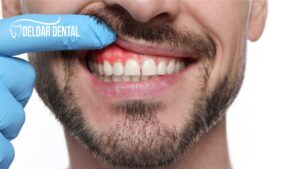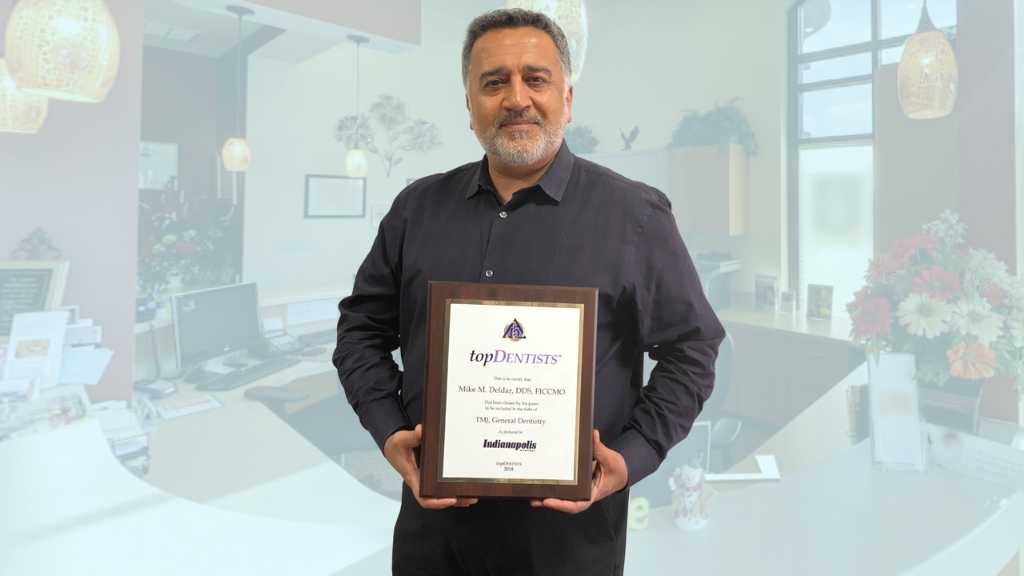Two of the most common dental diseases:
If you are anything like most Americans, you probably believe that your oral health isn’t greatly influenced by what you eat. However, two of the most common diseases I see in my family dentist practice – tooth decay (caries) and gum disease (periodontal disease) – are easily impacted, treated, and managed by diet alone.
Bacteria occur naturally in the mouth, but when too much sugar or starch is consumed, acids are created that directly attack tooth enamel. These acids contribute to the breakdown of healthy teeth and gums, leading to decay and gum disease.
Although many people recognize the danger of a sugary diet for tooth and gum health, a common misconception is that these are the only dangers to your oral health.
Brushing and flossing isn’t always enough. It is important to eat a well-balanced diet heavy in vitamins and minerals and low in fat, sugar, and acids to maintain a healthy mouth.
Although developing good oral hygiene habits plays a huge role in the health of your mouth, what you eat can often make or break your success in preventing and treating decay. Poor nutrition not only lowers immune response, but also impacts cardiovascular health.
The Link Between Diet and Tooth Decay
The best way to prevent tooth decay is to practice a diet of moderation. Nutritional deficiencies result when there is a gap between what the body needs to function properly, and what you are consuming.
- Balance is key: By incorporating foods from all five major food groups – fruits, vegetables, grains, dairy products, and protein (meat, fish or beans) – you will maintain all proper vitamin and mineral levels needed to keep a healthy mouth.
- Dairy products are great for teeth and overall health, as they contain high levels of calcium essential for bone growth and maintenance, especially in young children.
Personally, I recommend a diet rich in calcium, riboflavin, vitamins B12 and D, and complete proteins, as the body requires high levels of these components in order to prevent tooth decay and periodontal (gum) disease.
Foods that impact oral health
- Acidic foods, such as coffee, tea, lemons, and wine, should be consumed in moderation. They aren’t necessarily unhealthy as part of a balanced diet. However, when consumed in excess, they can reduce healthy tooth enamel and increase the likelihood of developing cavities.
- Whenever possible, reach for natural foods instead of those that are processed, as the latter often contain fewer vitamins and minerals and more fat and sugar.
- Make sure you also drink plenty of water, as dehydration can affect both soft and hard tissues in the mouth.
- Crisp, crunchy foods are the best for oral health, as soft and sticky foods such as candy or dried fruits can stick to the teeth and mouth and increase the likelihood of cavities.
- Balance your meals and try to include a representative of each food group in every meal. Try to avoid overeating, because every time, you eat you increase the likelihood of the development of oral bacteria.
- As always, make sure to brush and floss after meals to remove any leftover food residue!
Snacking to Improve Oral Health
Generally speaking, if you follow your pediatrician’s recommendations for healthy foods for your child’s overall health, those recommendations will also encompass oral health.
Stay away from high-fat, high-sugar snacks, as these will not only wreak havoc with your child’s energy levels, but also developing teeth. Snacks that are too starchy – such as breads or cookies – are fine in moderation, but break down into sugars once eaten and develop plaque.
The best options include raw vegetables, fresh fruit, or whole-grain crackers, since these break down slowly and help protect against tooth decay and gum disease. Some nutritious combinations are listed below. Children should also brush with fluoride toothpaste after any snacks or meals.
Snack Ideas from your family dentist:
- Low fat cheese with apple slices
- Celery with low-fat milk
- Sliced turkey and cucumbers
- Mixed nuts and fresh pineapple
When preparing a snack or meal, be sure to incorporate as many food groups as possible to ensure a high-vitamin, nutritious treat.
Let’s Talk
I’m happy to meet with you for a consultation to discuss the best way to keep your teeth – and your family’s teeth – happy and healthy through proper nutrition. I have been working with patients for more than twenty years to improve their oral health through a combination of holistic and dental practices.
By incorporating a healthy diet and regular dental visits as part of your normal routine, you’ll find yourself feeling healthier than ever.
To find out more about how you can protect your teeth, schedule an appointment online or give us a call. You’ll be glad you did!




